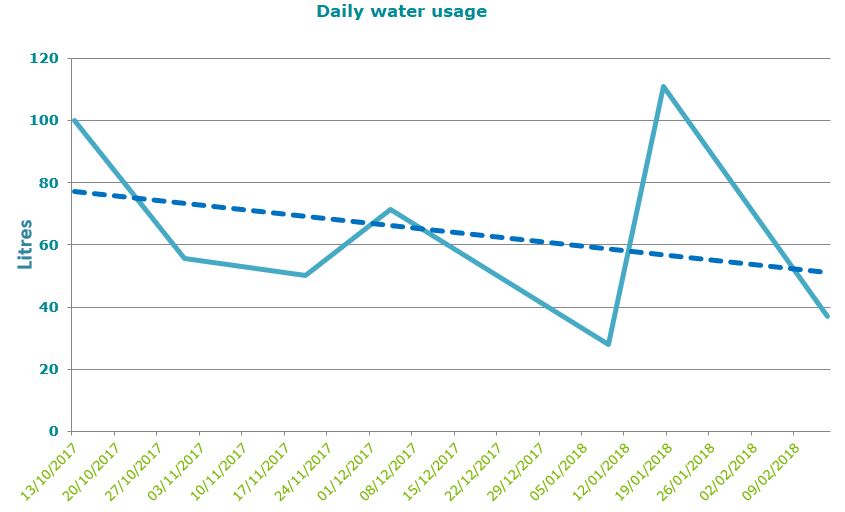While Cape Town’s drought has recently hit world headlines, it has been a slow-burning crisis for Capetonians for a while now. Water restrictions are currently at level 6b, the highest ever imposed.
The impact of climate change on the current situation is clear. My father, who has lived in Cape Town all his life, remembers days when he was young when he wasn’t able to wait for a cloudburst to end, but when it would rain solidly for days. This happens less and less, with cloudbursts more the norm than solid rain in Cape Town’s usually rainy winter months.
Living in Cape Town at present is tough – what started as a “fun challenge” of saving water has led to more and more inventive ways to save tiny bits of water to keep to the allowed 50 litres per person per day. We hardly ever flush the toilet with tap water (a ridiculous concept to begin with), and the garden no longer even gets grey water. Showers are very brief, really just turning the tap on twice, once to wet yourself and then again to rinse – getting it down to about 6 litres per shower, and normally only showering after exercise.

Graph showing the daily water consumption of Glen’s household (2 people and a dog).
While this may seem inconvenient, the worst is definitely yet to come. Should we not be able to avoid the taps being turned off – “Day Zero”, we will be queuing for water (25 litres a day) at water points, guarded by the police and military. Many people living in townships in the city do this daily, and it is a stark reminder of just how unequal the city is, with it taking a drought and a still-to-be-seen culmination of the crisis to get us all on the same level.
There is a swelling hope amongst environmentally-minded people that this crisis will be an opportunity to address our wasteful and inefficient means of providing bulk services (water, electricity, food, sewage) to this city and set an example for others globally. Hopefully, for cities like Cape Town, it will also be a chance to address our growing inequality.
There are as many people to blame for this situation as there are people you could ask, and while many blame those who could have “done something”, I prefer to look at those who definitely did, and continue to. Fossil fuel companies and their backers continue to extract fossil fuels despite the knowledge of climate change and its impacts.
In South Africa, the Development Bank of Southern Africa and four commercial banks are currently considering funding a coal-fired power station that is as polluting as some of the worst in the country. This sort of madness takes place when the science is clear, and the impacts of climate change continue to take a terrible toll. Even the cost of renewable energy is less.
The drought has been a wake-up call for me. Working in this field, I know what science says the impacts of climate change are likely to be, but nothing prepares you for the reality. We need to come together to fight climate change before it changes our lives in more ways, to withdraw support from fossil fuel companies and to stop fossil fuel infrastructure projects.
If you’re in Cape Town, you can start at the Divest Fest on 24 February, a divestment event looking at creative ways of speeding up divestment from fossil fuel companies.
Telling stories is what connects us to our humanity. It is what links us to our past, and provides a glimpse into our future and now the climate movement is calling on you to help shape our story. If you’re in Cape Town, can you share your story and tell us how you’re coping with the drought? Share here!
